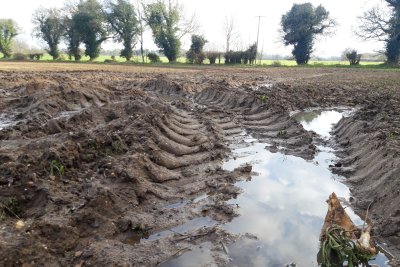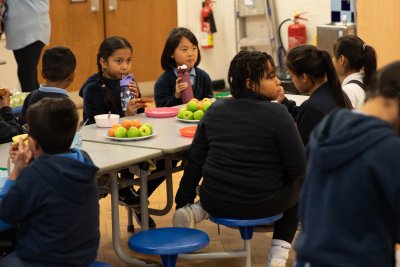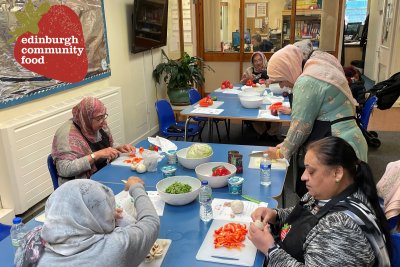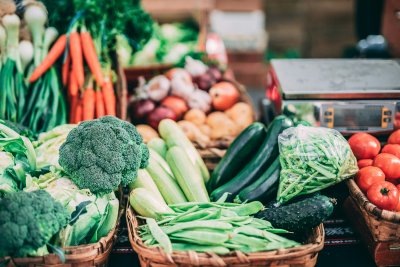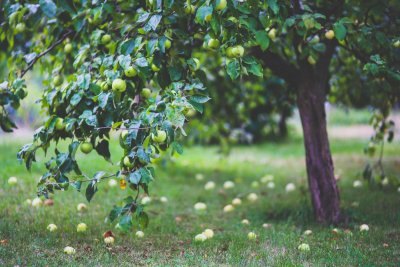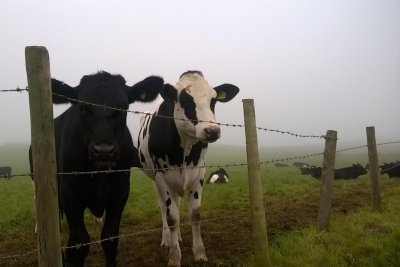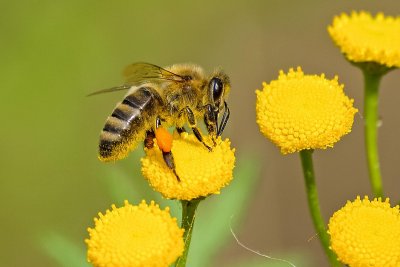Blogs • Sustainable Farming Campaign
Can Michael Gove MP redefine productivity in farming?
Currently, farming is judged using a narrow and outdated definition of 'economic productivity' that does little to recognise the vital role of farming, and the costs to farmers, in conserving natural resources and our farmed landscape. Productivity and farm efficiency need to be redefined for the modern age, argues Sustain's sustainable farming campaigner Vicki Hird.
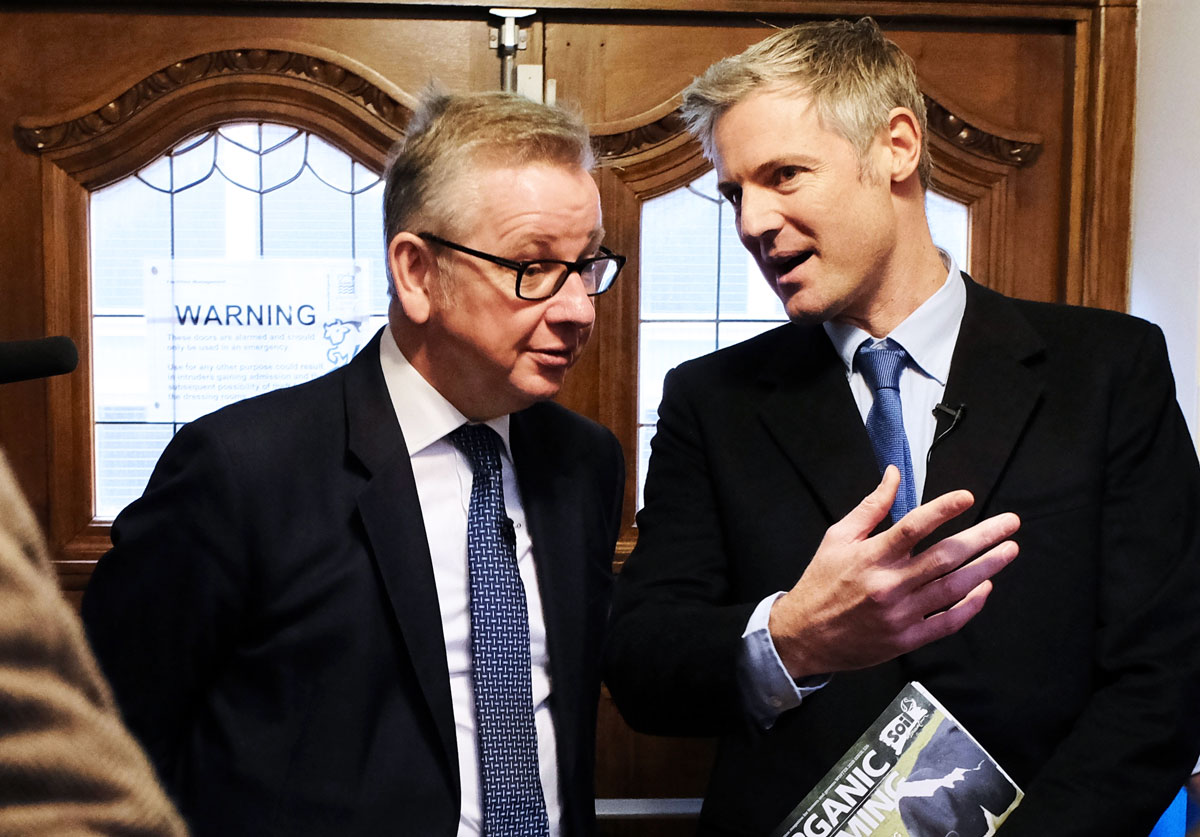
"There is almost nothing I can do on my farm to make it more efficient that doesn’t have a high ecological or social cost - or which would undermine my neighbours"
This was a farmer's comment to me in response to DEFRA Secretary Michael Gove MP's recent speech on more efficient farming. It is heartfelt and challenging.
The constant public reference to poor productivity, the demand for more ‘efficiency’ and for even lower prices has a very hard edge and can hurt. In many ways it is largely out of date.
It seems to be the time to redefine productivity and rethink what we mean by efficiency and then use it as a new tool to link public good outputs with the production system outputs. Why not? It is frustrating to hear farmers and non-farmers see such a gulf in understanding when what we need is a system approach rewarded with a combination of funding; via the current market; via public money for public goods; and via new markets for costed outputs. The price reflects the true cost of sustainable production.
Redefining productivity and efficiency in farming allows us to see this differently and could be used to measure the success of what this and probably many other farmers want to be associated with “… a kind of ..middle ground approach….like the Norwegian model which is nothing to do with efficiency - and everything to do with retaining the farming they deem to work.”
Another farmer recently writing in Farmers Guardian says “Our job as farmers is not to feed the world, despite what the ‘yield is king’ lobby might tell you. Our job is to feed our families, make a profit and produce food people want to eat.” And let’s not forget we waste a half the food in all sorts of ways.
Clearly we need to be efficient in how we use resources - minimising negative environmental and social impacts and produce enough food - but in this we need to be context specific and fix the production measure to the system on the ground. As the farmer explained to me “I could take greening money for a third of my farm, and intensify so much on the other two thirds and create a net loss of biodiversity. In many ways we need less efficient agriculture as we had in the past - mixed, multi habitat, rotational, i.e. sustainability the watchword instead of productivity/efficiency”.
But productivity is a precious economic concept. Is messing it up with messy sustainability ideas just naïve? Will it hit the usual opposition?
Productivity definition - Noun [mass noun] - The state or quality of being productive. A measure of the efficiency of a person, machine, factory, system, etc., in converting inputs into useful outputs.
With repeated complaints about our ‘low’ productivity in the agri-food sector, it would be easy to believe we need to increase yields, turn up the inputs dial and mine more from the land. How will we feed ourselves otherwise? This is the basis of short-term food production that will leave us hungry in the long-term.
Defra reports on how poorly we are doing as the ‘efficiency and competitiveness’ of UK agriculture fell by 2.2% in 2016. The figures are based on how well 10 farm inputs (as volume indices) are converted into 12 outputs to arrive at a measure known as Total Factor Productivity (TFP). It seems a rather unnatural measure for outputs so intimately reliant on nature. And what hidden costs (such as water pollution, soil erosion, pollinator depletion and so on) are not measured?
This is not about productivity in the food chain (retail manufacturing catering and so on) which has been on an upward curve. For the last 10 years the food chain has had a higher productivity than the wider economy, except for 2014 and 2015. Therein hide many issues - not least why workers in food chain tend to get paid the least.
Returning to the issue of farm productivity, mixed messages are emerging. Defra Secretary Michael Gove MP did say at the January Oxford Farming Conference that farm subsidies, paid on an areas basis are to blame. They have been “entrenching lower productivity” and that “farmers have been encouraged to focus on yield overall, rather than productivity specifically”. He also said “Sustainably managed land is far more productive than land that is stressed and stripped of its nutrients.”
DEFRA’s Country Productivity Grants are about efficiency, technology or added value. Lots of this makes sense and can deliver wider benefits such as pollution abatement - encouraging environmental and economic gain, hand in hand. That approach has a narrow scope and neglects other ‘goods’ but it is a start.
A narrow measure of ‘productivity’ as yield per unit of land or hour of labour is not fit for purpose. It separates issues of yield and profit from other, core and vital outputs. We need to agree a new definition for farming and food productivity which somehow embraces the full range of goods we need to see from farming – public and private.
In the same way that wider economics are being redefined from the ground up to reflect sustainability objectives (see for instance the Core project on rethinking economics education at the recent Friends Provident Foundation event), we need this element re-considered. Even as world leaders meet in the World Economic Forum this week in Davos they are being met with clear evidence that prioritising economic growth and GDP as a measure over social equity has meant unprecedented levels of wealth and income inequality and environmental harm.
What could productivity be measured by? Some ideas could include:
- Growing soil health (carbon, organic, microbial content)
- Biodiversity loading (maybe different levels for different types)
- Food production – volume and diversity
- Resilience in rural economy and cohesion (local multiplier effect, number of people employed/ maintained by the farm)
- Water (slowed and cleaned)
- Carbon stored (trees, hedges, soil biomass)
- Effective disease control (animal presenting heathy at slaughter, lower vets’ bills)
- Economic yields via integrated pest management.
A non-exhaustive list and additions welcome (vicki@sustainweb.org). Revealing the hidden true costs and benefits of production are key. But this is starting to resemble a list of public as well as private goods from farming. Apart from the private goods – the food and other products for conventional markets and costed outputs such as flood prevention for new markets (as National Trust and Green Alliance are suggesting) – the public goods add up to a considerable level of productivity. They need recognising and evaluating as outputs.
So how do we need to measure and report on this new productivity? There was a huge effort in the 2000s to officially define sustainability indicators but this has been stopped and they were pretty separate from any policy making – and it is clear the all-important HM Treasury is not changing its standard productivity obsession anytime soon.
But as Michael Gove mentioned new metrics in his speeches, and the desire to create “a new gold-standard metric for food and farming quality” maybe there is room to shift thinking on land ‘productivity’ at least? Gove noted the lack of a “single, scaled, measure of how a farmer or food producer performs against a sensible basket of indicators, taking into account such things as soil health, control of pollution, contribution to water quality as well as animal welfare.”
Red Tractor, RSPCA Assured, organic certified farming and other accreditation schemes all may fear this as a new precursor to an ‘omni label’ as Professor Tim Lang once described it. Some assurance schemes need a major shake-up but that’s not what this is about.
It is about industry and government rethinking the way they measure success, report on it and act to enhance it. And it could be the basis on how we decide what to pay for with public money, to incentivise public goods. Any decent, user-friendly measurement of real productivity necessitates considering all production inputs from labour to soil.
The resistance to redefining economic concepts is huge but the recognition that environmental protection and economic growth are not in opposition are well established. Even the UK Prime Minister Theresa May said as such recently in her ’25 Year Environment Plan’ speech. If we continue to erode the natural capital and systems on which our growth - natural, human and economic – depends, it will not work out well.
So when we talk of improving productivity we should be talking not only about environmental benefits delivering that productivity; those environmental improvements are an output in themselves. Protecting the soil and water and pollinators is vital to the food production long term… but they are a product too that we can measure and report on.
This matters as we define not only future farm payment schemes, but trade and investment and R&D strategies. When Defra develops its set of metrics to assess progress towards their 25 year goals and undertake, as May promised, the second ‘National Ecosystem Assessment’ initiative in 2022, measuring productivity in terms of public good outputs will signal real progress.
Main image: Michael Gove and Zac Goldsmith at the Oxford Real Farming Conference by Hugh Warwick.
Published Thursday 25 January 2018
Sustainable Farming Campaign: Sustain encourages integration of sustainable food and farming into local, regional and national government policies.
